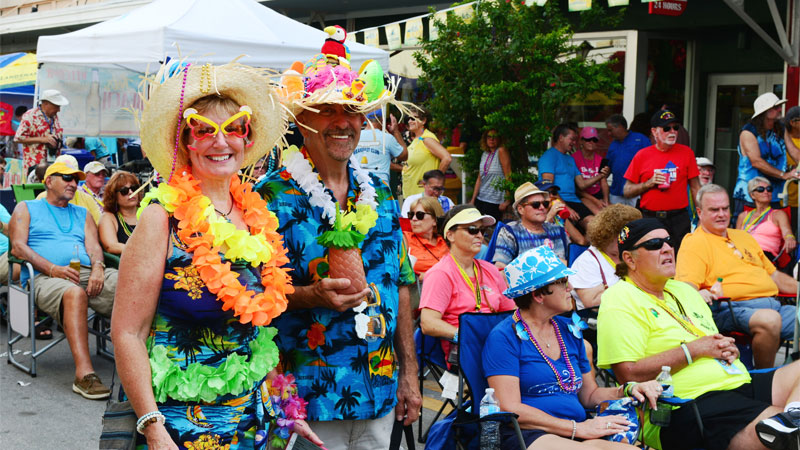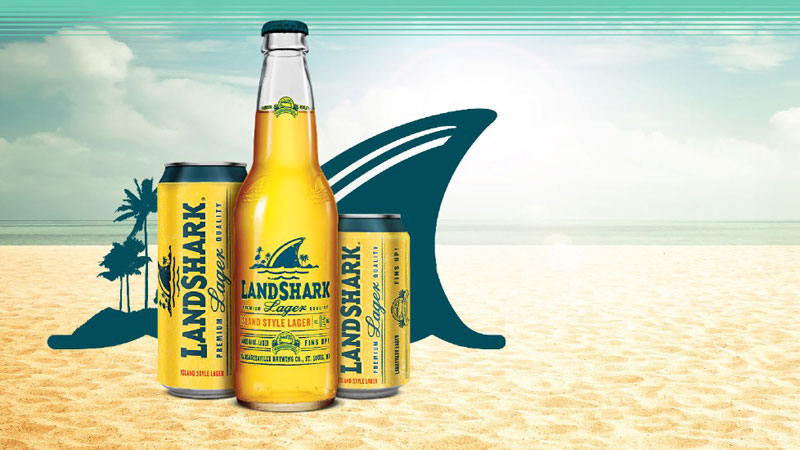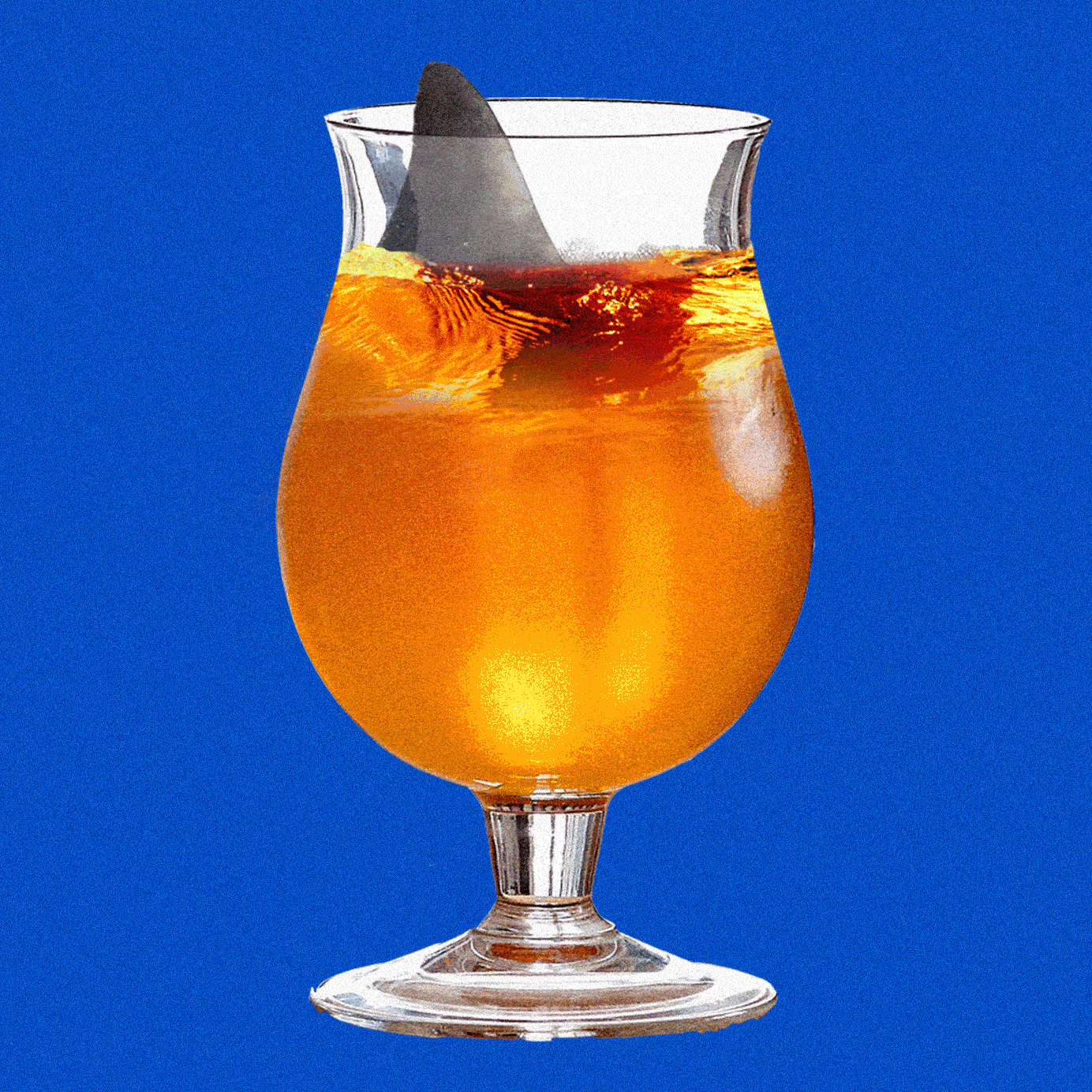Jimmy Buffett’s entry to the beer world happened quite accidentally, as you’d expect most things do in Buffett’s life. It was 1984 and the laid-back rocker was sitting in the office of his manager, Howard Kaufman. As Kaufman spoke on the phone with Corona’s marketing team, trying to get them to be the beer sponsor for another client, The Eagles, on their upcoming tour, Buffett interjected:
“Hey, I’d like Corona to be my sponsor, too,” he said.
It was a curious choice because, at the time, most American consumers saw Corona as more of a Mexican workingman’s beer; not some cut-loose, sand-in-your-toes, party pounder. But, upon inking a deal with Buffett, Corona quickly started incorporating the Margaritaville beach lifestyle aesthetic into its ads and promotional materials. According to Forbes, “Corona hired him to flog its Mexican brew to young, cash-fat consumers,” spending more than $2 million on a radio campaign starting in 1984.
In turn, Buffett’s fans, known as Parrotheads, committed themselves almost exclusively to the light cerveza at shows, where, during the song “Cheeseburger in Paradise” a sign would illuminate on stage showing Corona bottles with limes wedged in their necks.
“Go to a Jimmy concert today, look around, and you’ll say, ‘Wow, this is all Corona imagery,” says John Cohlan, the longtime CEO of Margaritaville Holdings, LLC, in Palm Beach, Fla. “But, you have to remember, it wasn’t always like that.”
Realizing that it had inadvertently stumbled upon lightning in a bottle, Corona went so far as to co-opt the title of Buffett’s seminal 1977 album, “Changes in Latitudes, Changes in Attitudes,” for a subsequent campaign. “Change your whole latitude” was the motto in commercials and on billboards all across the country by 1992. Corona trademarked that line without even informing Buffett.
“That ended up being the most successful Corona ad ever,” explains Cohlan, who still isn’t sure whether Buffett is aware of what the beer brand had done.

Corona’s sales had been declining as recently as 1991, but once it adopted the “latitude” tagline, in 1992, business was booming. “The sponsorship of Jimmy Buffett … helped create a fun-in-the-sun image for the brand,” AdAge wrote in 1998 as Corona had just ousted Heineken to become America’s top imported beer.
By 1999, when Corona finally scrapped the Buffett-based tagline, it was the nation’s 10th best-selling beer, seen as the quintessential “vacation in a bottle.” Today, it’s one of the only macro beers still trending upward in sales.
“And it was all based on this IP that came directly from Jimmy’s tour,” Cohlan says. “That made us start thinking … maybe we should quit Corona and do our own thing.”
Room for more than one ‘Vacation in a bottle’
“Woodstock for people who like to drink heavily.”
That’s what Cohlan jokingly calls the annual New Orleans Jazz & Heritage Festival. It was there, in 1998, where he first met Buffett. At the time Cohlan worked with Triarc, a holding company that held shares in brands like Arby’s and RC Cola. Triarc had moved its operations to Florida in the early 1990s, and Northeast-raised Cohlan still wasn’t thrilled about it. But, as he watched Buffett perform for the first time, he had a revelation.
“I looked out and I saw all these people dressed up,” Cohlan says of Parrotheads’ signature, tropical-splattered beachwear, “and I said to myself, ‘This is more of a brand than the brands that we actually own.’ Buffett was their entire way of life.”
At the time, Buffett operated just three small Margaritaville restaurants in Key West, Fla., and Jamaica and didn’t seem that interested in expanding, especially after one foray into New Orleans had flopped. But, upon creating his role as CEO of Margaritaville Holdings, Cohlan brokered a deal with Seagram Spirits & Wine Group (which also owned Buffett’s label at the time, MCA) to license the name Margaritaville to a 20,000-square-foot space at the entrance to Universal Studios’ new Islands of Adventure theme park in Orlando.
When it opened, in May 1999, it was a massive success. The empire began rapidly expanding, with Margaritaville restaurants popping up all across the country.
Capitalizing on that success and, after angering Cohlan by releasing a sounds-a-little-too-similar Parrot Bay Rum, Seagram quickly issued a line of Margaritaville Tequila in 2000.
Buffett’s tour, meanwhile, was still sponsored by Corona. In 2006, as the 8th annual Orlando Beer Fest (held at Universal CityWalk) approached, Cohlan realized it was finally time to make a move. It was time for Buffett and Margaritaville to have their own proprietary beer for the restaurant chain and, perhaps, the world. (“Let’s take our beach back,” he recalls Buffett saying.)
Cohlan initially approached Corona about contract-brewing their beer, but, as he recalls, they told him, “No thanks. We already have a ‘Corona.’” They moved onto sponsoring Kenny Chesney.
So Cohlan called up his buddy Dave Peacock, then-president of Anheuser-Busch. Conveniently, they had been looking for a “Corona killer” for years, having already failed with two previous challengers, Azteca in the late-1990s and Tequiza, a tequila-flavored beverage that was about to be discontinued.
“Thankfully, [Peacock] said, ‘There’s room in America for more than one “vacation in a bottle,”’” Cohlan says.
No one wants to drink a ‘Lone’
Parrotheads were both angered he’d dumped Corona, then a little confused by who was making his new beer, but, ultimately, they fell hard for LandShark Lager, which burst onto the scene at Buffett’s Feb. 10, 2007 Tallahassee concert.
Initially, the brand had called it Lone Palm Lager — based on the name of a song from Buffett’s “Fruitcakes” album and the outdoor seaplane bar near Margaritaville — but the name just wasn’t resonating. As Cohlan explains:
“When we did consumer research, people would say “I don’t want to drink a ‘Lone.’”
Calling it Margaritaville Lager would have been a little confusing, too. So they started thinking about some of his other songs. Then, just like now, one of Buffett’s most popular concert performances was for “Fins.” It’s about a woman at a beach bar who feels like prey to all the men trying to aggressively pick her up. Before each live performance, audience members place their hands in the shape of a fin on top of their heads and start swaying back and forth while Buffett would call out: “The LandSharks are coming!”
They were already selling concert merch with LandShark logos on it — a fin with squiggly waves underneath it, palm trees in the background— and it wouldn’t be too hard to adapt that for a beer. It would come in a clear bottle, just like a Corona, and be an inoffensive and easy-drinking “island lager.” Its slogan, written on the spur of the moment by Buffett, was “Let the fin begin!”
Even in this highly skeptical era, when most people still don’t realize what “crafty” beers are owned by multinational conglomerates, folks were onto LandShark Lager right from the get-go.
The first-ever review of Landshark Lager on BeerAdvocate, in January of 2007, reads, “Looks very much like [Anheuser-Busch]’s version of Corona, right down to the bottle and marketing.” Another early review notes: “[Anheuser-Busch]’s latest attempt to bite into the Corona market in the sunshine state. It’s got the pee yellow color, snappy name, and clear bottle.” By March, The Palm Beach Post was reporting that “Buffett’s new beer masquerades as microbrew,” explaining:
“At first glance, LandShark looks like a microbrew that’s produced by Buffett himself. After all, the name alludes to the Buffett song Fins, the product is displayed prominently on Buffett’s Web site and the bottle says the lager is made by Margaritaville Brewing Co. of Jacksonville. But LandShark is brewed by Anheuser-Busch Cos. of St. Louis, although the nation’s largest brewer seeks a stealth role.”
(Cohlan claims Margaritaville simply licenses its name out to the brewery.)
Reviews of the beer’s quality were even more dismissive.
“Like a bad Corona,” wrote one online review. “Could maybe see drinking this on a dive boat in Mexico … And it would have to be 95 degrees, with the beer temp just above freezing.” Doug Blackburn, Tallahassee Democrat’s online beer columnist, wrote. “LandShark Lager lacks taste and flavor. At best, it qualifies as a lawn mower beer, a post-workout thirst quencher.”
Almost since the beginning, it has scored a pathetic 1 (out of 100) on RateBeer.com.
Yet, none of this seemed to matter to Parrotheads who quickly began switching their allegiances. “You dont even need a lime to make it better to drink. (sic)” wrote one fan on an early beer forum.

Initially it was only available at Margaritaville restaurants, Buffett concerts, and in Florida, but it quickly expanded nationwide, sitting on store shelves and in gas station coolers right next to Corona. By the 2009 NFL season, the Miami Dolphins were even playing in LandShark Stadium, a move the football team thought would make game day a more “multi-entertainment experience” for fans. It looked like LandShark Lager had a real shot to become the “Corona killer.”
But then … it never really did.
In fact, I literally thought the beer was no longer on the market when I began reporting this story, but that’s not true whatsoever. It may have never taken down Corona, but it still became a pretty big player in macro beer, all in a bit of a weird, “Florida man” kind of way. That’s why, if you’re a guy like me, who mainly goes to craft beer bars in urban environments, you aren’t really going to ever see it.
Yet Landshark Lager sells close to 4 million cases a year in America, which makes it a better seller at retail than Guinness. (Though, not as good as Corona, which reportedly sold 65 million cases in 2017 and is today the fifth best-selling beer in America.) It also sells well in Canada and numerous spots in the Caribbean. It’s not just boomer Parrotheads buying it, either — there’s a college ambassador program that has led the brand to pick up steam among our nation’s newest beer guzzlers.
(And all this without a single TV commercial. In fact, Cohlan claims they spend less than $1 million a year on marketing, compared to the over $100 million per year Corona spends on advertising.)
There are also currently 12 LandShark Bar & Grills (in such far-flung places as Branson, Mo., and Tulsa, Okla.), not to mention LandShark bars on six different Norwegian Cruise Line ships. LandShark Stadium relinquished the naming rights after just one year — it’s called Hard Rock Stadium today — though a rewritten version of “Fins” still does play occasionally after touchdowns, while the concession stands serve plenty of the lager. The beer is not going away any time soon and Cohlan thinks it still has room to grow to 10 million cases per year.
You could argue this was the first real celebrity beer, way ahead of its time compared to today’s era when Metallica is now partnering with Stone, or the Grateful Dead with Dogfish Head. LandShark Lager does a helluva lot better than all those beers, too, and will almost certainly still be around when they are not. That’s the power of Buffett, as a musician, businessman, and beerman.
“It ultimately works because Jimmy created one of few true lifestyle brands in this country,” Cohlan says. “It’s not a celebrity beer. It’s not called Jimmy Buffett Beer, and that’s intentional. That’s to his credit. His art form created an entire lifestyle around his lyrics. About working hard, but being able to still escape and enjoy yourself. A person’s name is not a lifestyle, but a person’s art can be. That’s why LandShark Lager works. You look at other celebrity beers, and he dwarfed the curve.”
Meanwhile, even if LandShark Lager didn’t win the initial race, Buffett, the indefatigable businessman, is still looking for ways to beat Corona. In September of last year he announced plans for his own marijuana line. It will be called Coral Reefer.
